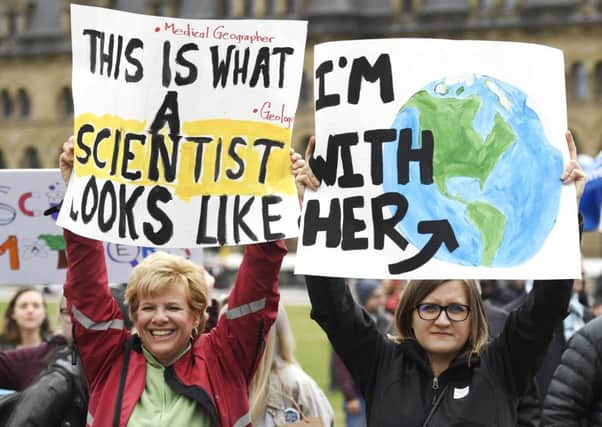Thousands take to Edinburgh streets on March for Science


The March for Science began at Waterloo Place, Edinburgh, before continuing to the Scottish Parliament. Saturday’s event ended with a rally, music and speeches from prominent scientists.
More than 400 similar initiatives in 36 countries have sprung up since President Donald Trump was elected to the White House.
Advertisement
Hide AdAdvertisement
Hide AdOrganised by volunteers in Scotland, the march celebrated and promoted science and its diversity in everyday culture
It also hoped to show why funding for science is important and to highlight how it is under threat.
Marches were held across the UK on Saturday and the Scottish march hoped to show support for evidence-based policy and academic freedom.
A spokesman for the March for Science in Scotland said: “We we’re blown away by the huge numbers who came out to support the March for Science.
“It’s fantastic to know so many people support the sciences, recognise the important role science plays in all our lives, and that political leaders and policy makers should enact evidence-based policies in the public interest.
“We had scientists and non-scientists, young and old, all marching to celebrate, promote, and defend science. This is just the start, we hope everyone went home enthused to do all they can to stand up for science in the future.”
Professor Anne Glover, former Chief Scientific Adviser for Scotland and former Chief Scientific Adviser for the President of the European Commission, spoke at the rally.
Advertisement
Hide AdAdvertisement
Hide AdShe said: “I am proud to support the March for Science. Many of us have benefited from public funding for our research and so we have an obligation to speak out when science or evidence are misused or misquoted.
“Science helps us make sense of our world and the knowledge research generates can transform lives, if we don’t speak out about its value, who will?”